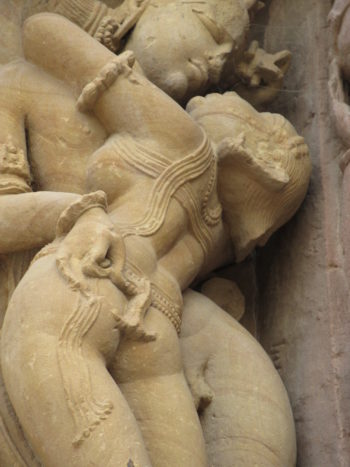It was during my second trip to Khajuraho in the winter of 2014 that I decided to begin my study on love. This long project meant an interruption of my past work on our historical time; it was, for me, a spiritual liberation of sorts. At the same time, I was still involved in the recovery of one of the most sublime works of the Iberian traditions, the Dialoghi de Amore of Leone Ebreo, whose significance I had previously discussed in El continente vacío.
Ensayo sobre el amor departs from a simple premise: that the history of love, the history of the configuration of human eroticism and sexuality is articulated and fused in the spiritual nucleus of the history of religions. But it does not simply merge with them. The very experience of human love comprehends the same intimate emotions associated with the symbols of religious and mystery cults. In writing this essay, I came to understand that in both the Sumerian hymns to the goddess Inanna and the myth of Eden in Torah, the sacred constitution of the cosmological and political order is logically and emotionally connected with the historical figures of human love.
It is a story of an imaginary journey, an initiation journey in reverse. Its starting point is “Love in the West” and its constituent principles: guilt, obedience, service and death. From there begins the genealogy of the ancient origins of the poetry and mythology of Eros or Kama as presented in Kabala, Hindu mysteries, Buddhism and Sufism, and last but not least, in the love rituals presided by the goddess Aphrodite, the sybil Diotima in Plato’s Symposium, and in the Sumerian hymns to the goddess Inanna. Ensayo sobre el amor is anexploration of erotic epos and logos.
